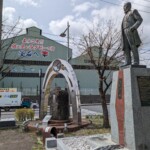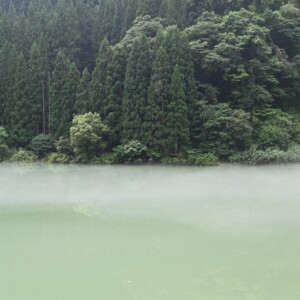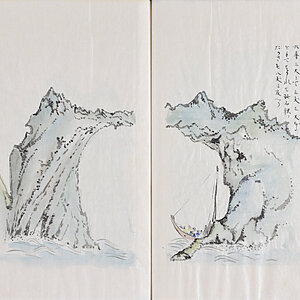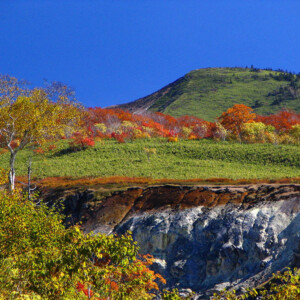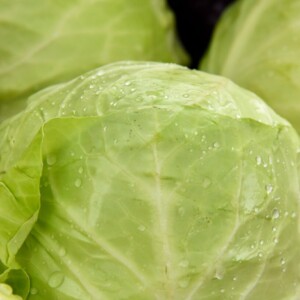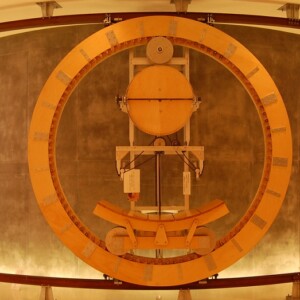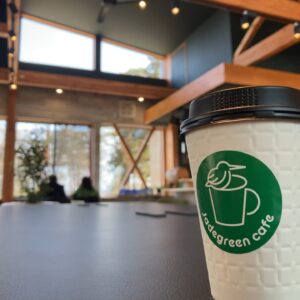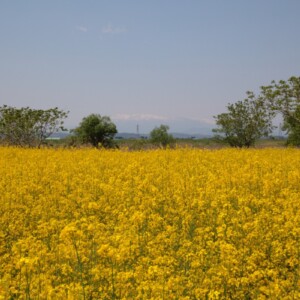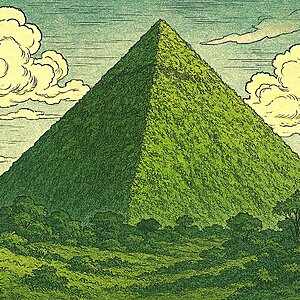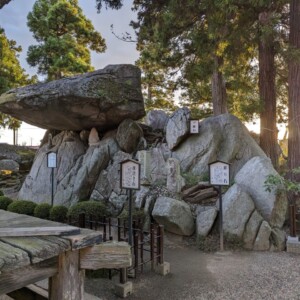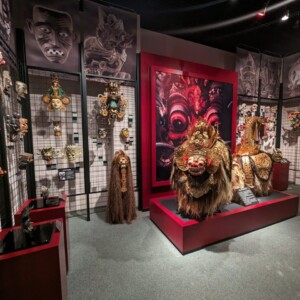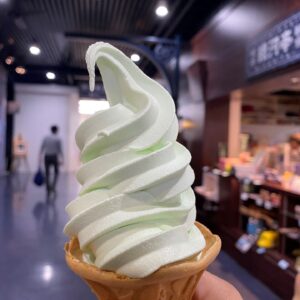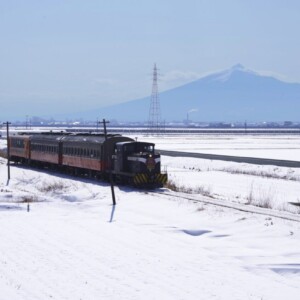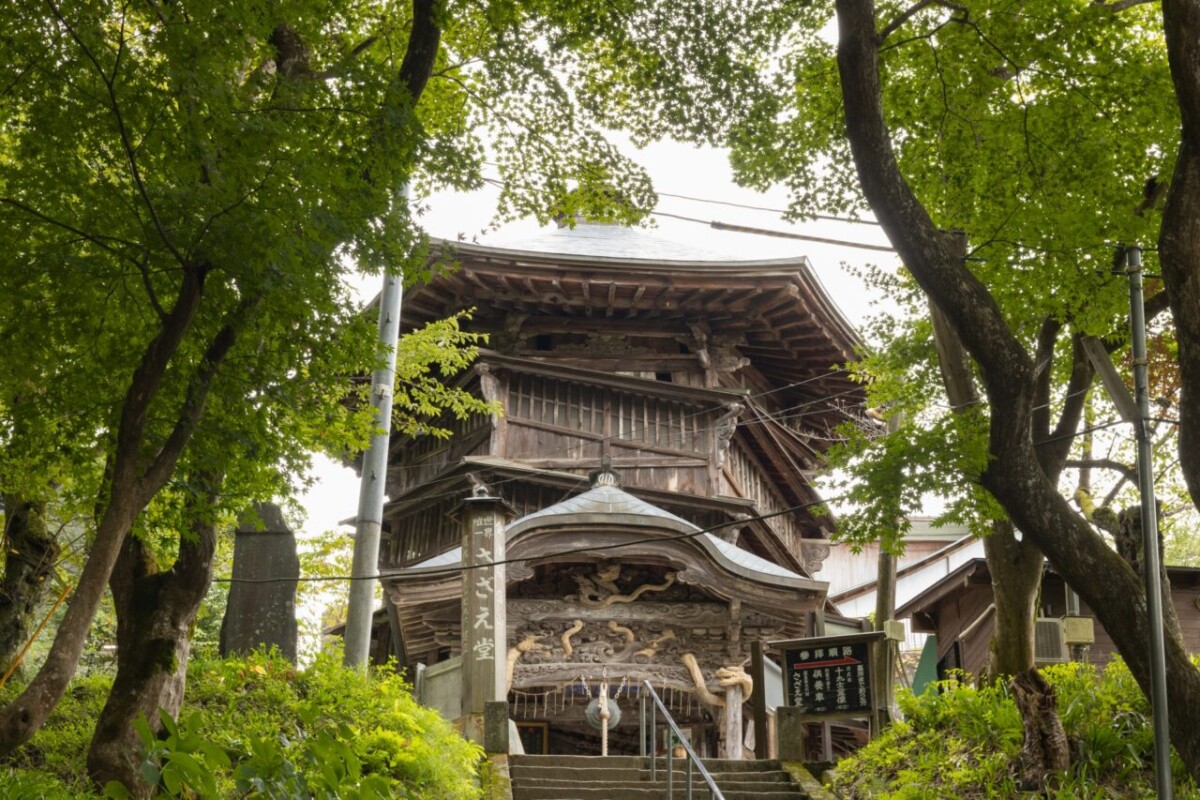
[Aizuwakamatsu City, Fukushima Prefecture] "Aizu Thirty-Three Kannon Temples" Tour around the Kitaaizu Area, Centered on Aizuwakamatsu
table of contents
- 1 Aizu region, where Buddhism missionary work began early
- 2 The Thirty-Three Kannon Temples of Aizu, established by Aizu feudal lord Masayuki Hoshina
- 3 Pilgrimage to the Thirty-Three Kannon Temples of Aizu is a huge hit, especially in rural areas
- 4 Aizu Thirty-three Kannon Temples, with 33 Kannon Halls and 3 extra temples
- 5 Highlights of Aizu Thirty-three Kannon Temples
- 5.1 The 10th temple, Shojo Kannon, is home to three national treasures and nine nationally designated important cultural properties
- 5.2 The extra temple "Ukimi Kannon" where the national treasure Lotus Sutra text is on display
- 5.3 The 6th temple, "Shokannon," is designated as an Important Cultural Property of Japan
- 5.4 The 26th temple, Tomioka Kannon, whose Kannon Hall is designated as an Important Cultural Property of Japan
- 5.5 The Kannon Hall and 29th temple of Aizu's oldest temple, Hoyo-ji, which is a nationally important cultural property, is called "Suzakurin Kannon."
- 5.6 The principal image and the Kannon Hall that houses it are designated as important cultural properties of Japan
- 6 List of "Aizu Thirty-three Kannon"
The Thirty-three Kannon temples of Aizu are a Buddhist cultural element that forms the core of the "Pilgrimage to the Thirty-three Kannon temples of Aizu - Seeing the culture of ancient Aizu through pilgrimage," which has been certified as a Japan Heritage site.
Aizu is the area in the Tohoku region where Buddhism first spread and flourished. During the Kofun period, when the Tohoku region Emishi and was an uncivilized area for the people of the Yamato court, the Aizu region had already begun to interact with the court.
Aizu region, where Buddhism missionary work began early
Buddhism was introduced from the Korean Peninsula in 538 (some say 552) during the Kofun period, and missionary activities were carried out in Aizu in the early Heian period (around 794-1185)
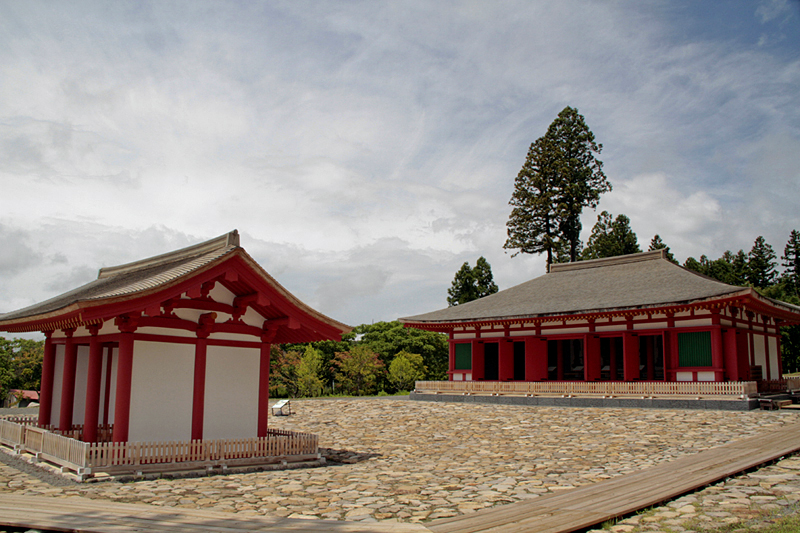
Enichiji Temple, founded approximately 1,200 years ago
Approximately 1,200 years ago, Tokuitsu, a high priest from Kyoto, founded Enichiji Temple
Enichiji Temple was abandoned at the beginning of the Meiji era and lost its function as a temple, but in 1970 (Showa 45), the site became a national historic site, and the main hall was restored in 2008 (Heisei 20), and the inner gate in 2015 (Heisei 27)
The adjacent Bandaisan Enichiji Temple Museum displays Tokuichi's only remaining possession, the Hakudo Sankosho (a nationally designated important cultural property), as well as excavated materials and cultural assets
INFORMATION
- Facility name: Historic site of Enichiji Temple
- Address: 4614-5 Honji Yahata, Bandai-cho, Yama-gun, Fukushima Prefecture
- Inquiries: 0242-73-3000 (Bandai Enichiji Temple Museum)
- Opening period: April 10th to November 30th (winter holidays)
- Opening hours: 9:00-17:00 (last admission 16:30)
- Admission fee: Adults (general and university students) 300 yen / Combined admission ticket with Bandaisan Enichiji Temple Museum Adults (general and university students) 500 yen
- Facility name: Mount Bandai Enichiji Temple Museum
- Address: 38 Teranishi, Bandai-cho, Fukushima Prefecture
- Inquiries: 0242-73-3000
- Opening period: April 10th to November 30th (winter holidays)
- Opening hours: 9:00-17:00 (last admission 16:30)
- Admission fee: Adults (general and university students) 300 yen / Combined admission ticket with the Enichiji Temple ruins Adults (general and university students) 500 yen
- URL: Keiichiji Temple
GOOGLE MAP
The Thirty-Three Kannon Temples of Aizu, established by Aizu feudal lord Masayuki Hoshina
In the Aizu region, where Buddhist culture was deeply rooted, the "Pilgrimage to the Thirty-Three Kannon Temples" became popular among the local people. The pilgrimage to the Thirty-Three Kannon Temples is said to have been started by Tokudo Shonin, who founded Hasedera Temple in Yamato Province (Sakurai City, Nara Prefecture) in the early Nara period, and sacred sites were subsequently established all over the country.
Until the Edo period, the Aizu region did not have any sacred sites, and the people of the domain had to travel to other areas, which took several months to travel round trip. Hoshina Masayuki, who became the first lord of the Aizu domain in 1643 during the Edo period, was concerned about the financial burden on the people of the domain due to traveling to other areas and the flow of important money outside the domain, so he established 33 Kannon temples within his domain
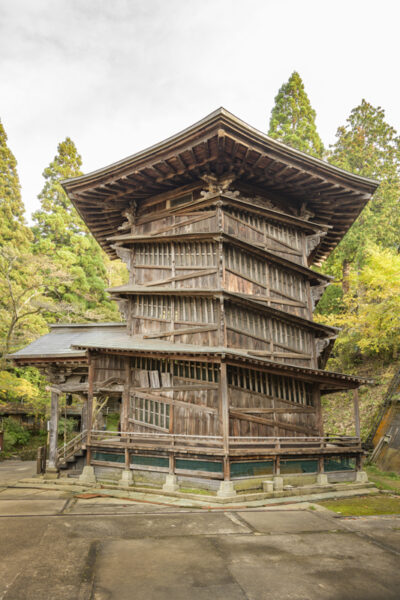
Pilgrimage to the Thirty-Three Kannon Temples of Aizu is a huge hit, especially in rural areas
Hoshina Masayuki designated the 33 Kannon temples in the northern Aizu region as temples for the Aizu domain, with the castle in Wakamatsu (Aizu-Wakamatsu) at the center. This "Aizu Thirty-Three Kannon" marked the beginning of the Aizu Thirty-Three Kannon pilgrimage, which became extremely popular as a short trip for the people of the domain, especially women in rural areas, to promote friendship and enjoyment
However, the Aizu domain was vast, and the original "Aizu Thirty-three Kannon" temples were concentrated in northern Aizu, so there was a growing desire to establish Thirty-three Kannon temples in areas farther from Aizu-Wakamatsu, and so Thirty-three Kannon temples were established, such as the "Okurairi Thirty-three Kannon Temples" in the southern Aizu region and the "Inawashiro Thirty-three Kannon" in the eastern area. All of these have been certified as a Japan Heritage site, "A Pilgrimage to the Thirty-three Kannon Temples of Aizu - Seeing the Culture of Ancient Aizu Through Pilgrimage."
Aizu Thirty-three Kannon Temples, with 33 Kannon Halls and 3 extra temples
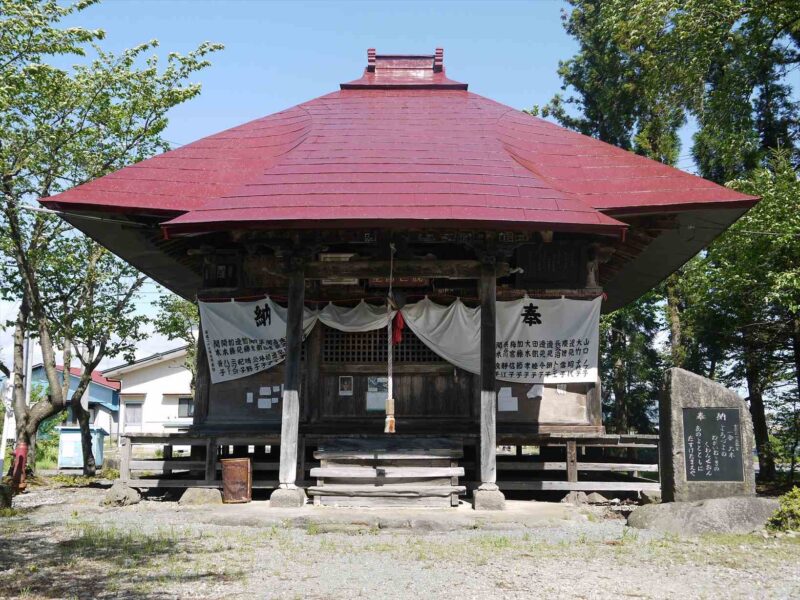
The "Aizu Thirty-three Kannon", first established by Masayuki Hoshina, has 33 Kannon halls arranged roughly clockwise, with Oki Kannon in Kitakata City as the first temple. There are also three additional temples , which are collectively known as the "Aizu Thirty-three Kannon".
The 36 temples are widely scattered across two cities, four towns, and one village - Kitakata City, Yugawa Village, Aizubange Town, Aizuwakamatsu City, Aizumisato Town, Yanaizu Town, and Nishiaizu Town - which would be considered modern-day municipalities. People enjoyed their trip by chanting goeika (a tanka-style Buddhist song) representing each Kannon, depositing the ofuda (paper charms) they had brought with them with their wishes written on them at the temple, and receiving a goshuin (temple seal) from the temple as a memento
Pilgrimage to the Thirty-Three Kannon Temples of Aizu / The Ultimate Aizu
- Phone number: 0242-39-1251 (Exquisite Aizu Project Council)
- URL: Pilgrimage to the Thirty-Three Kannon Temples of Aizu
Japan Heritage Portal Site Aizu Thirty-three Kannon Temple Pilgrimage
- URL: Japan Heritage
Highlights of Aizu Thirty-three Kannon Temples
The Aizu Thirty-three Kannon Temples include many temples that are national treasures and other important cultural properties designated by the national and local governments, and you can take your time to view these cultural properties while on a pilgrimage to the Thirty-three Kannon Temples
The 10th temple, Shojo Kannon, is home to three national treasures and nine nationally designated important cultural properties
Shojoji Temple, where the 10th temple, Shojo Kannon, is located, is an ancient temple that was founded by Tokuichi Shonin in 807 during the early Heian period. At its peak, it was a large temple with seven buildings, over 100 branch temples, and 12 lodgings
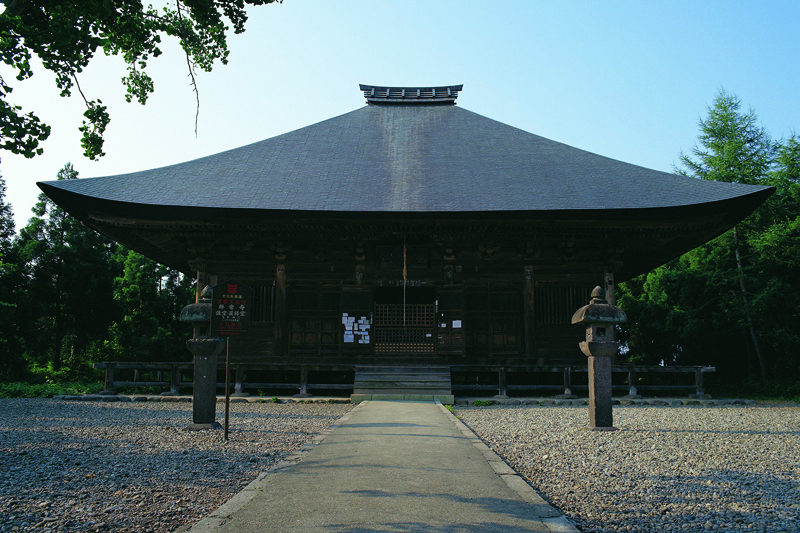
The current buildings were rebuilt in the early modern period, except for the Yakushido Hall, which was originally a lecture hall. However, the Yakushido Hall retains its appearance from the Heian period and has been designated an Important Cultural Property of Japan
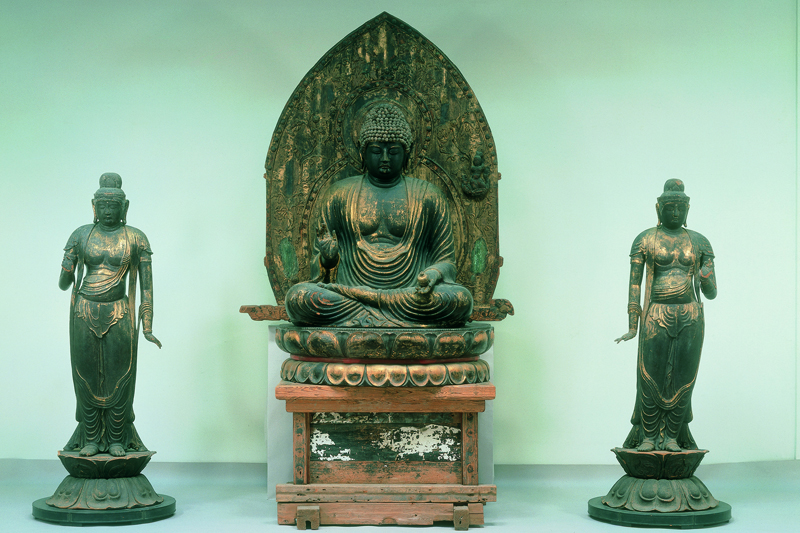
There are over 30 Buddhist statues remaining, of which the wooden seated statue of Yakushi Nyorai (Medicine Buddha), said to have been carved in the early Heian period, and its two attendants, the standing statues of Gakko Bodhisattva and Nikko Bodhisattva, are designated as national treasures, and nine others, including the standing statue of Shokannon Bodhisattva and the standing statue of Juichimenkannon Bodhisattva, are designated as important cultural properties of Japan
In addition, 14 other Buddhist statues, including a wooden seated statue of Tokuichi Bodhisattva, 20 hanging scrolls, and one mandala painting are designated as important cultural properties by Yukawa Village
INFORMATION
- Facility name: 10th temple Shojo Kannon/Shojoji Temple
- Address: Daimai, Katsutsune, Yukawa Village, Fukushima Prefecture
- Phone number: 0241-27-4566
- Opening period: April 1st to November 15th (closed in winter)
- Visiting hours: 9:00-16:00
- Closed: Tuesdays, November 16th to March 31st *Please contact Shojoji Temple directly regarding admission
- URL: Shojoji Temple
GOOGLE MAP
The extra temple "Ukimi Kannon" where the national treasure Lotus Sutra text is on display
Another national treasure of the Aizu Thirty-three Kannon is found at Ukimikannon, one of the extra temples
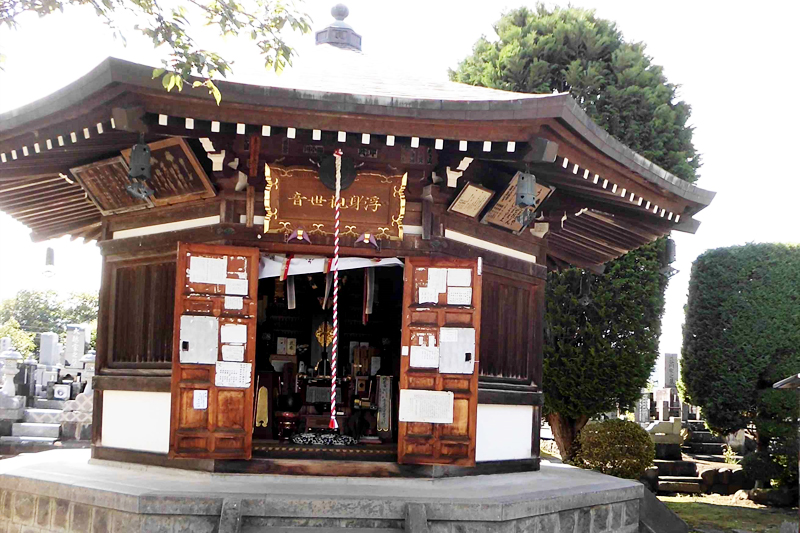
The National Treasure "Ichijirendai Hokekyo (Volume 6 missing)" is a piece in which each character of the Lotus Sutra is written on a lotus pedestal (a lotus flower container), and is thought to have been made in the late Heian period. To view this national treasure, you must make a reservation in advance at Ukimi Kannon (Ryukoji Temple) and make a donation
INFORMATION
- Facility name: Extra temple 1 Ukimikannon
- Address: 2222-3 Ryukoji Kitako, Aizumisato-machi, Fukushima Prefecture
- Phone number: 0242-54-2446 (Ryukoji Temple)
GOOGLE MAP
The 6th temple, "Shokannon," is designated as an Important Cultural Property of Japan
The sixth temple, Sugure Kannon, located in Kitakata City, is a Kannon hall at Shofukuji Temple, which is said to have been founded in the Heian period. It was rebuilt during the Eiroku era (1558-1569) by the Ashina clan, who ruled Aizu at the time
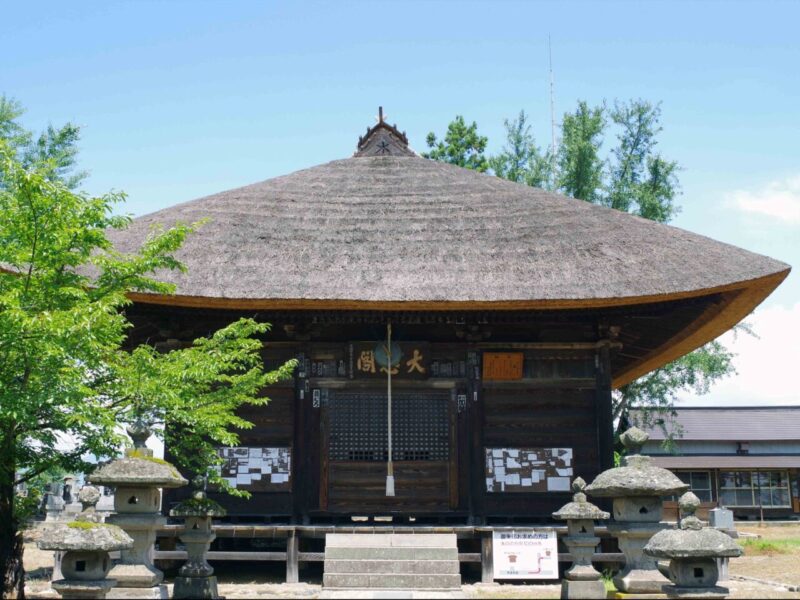
"Shofukuji Kannon (Shofukuji Kannon Hall)" is designated as an Important Cultural Property of Japan. Other items donated to Shofukuji when the Kannon Hall was rebuilt include the bronze temple bell, the wooden standing statue of Acala, and the wooden standing statue of Bishamonten, which are designated as Important Cultural Properties of Fukushima Prefecture
INFORMATION
- Facility name: Temple No. 6, Katsukannon
- Address: 630-1 Mitsuidonoue, Sekishibacho, Kitakata City, Fukushima Prefecture
- Phone number: 0241-24-3821 (Board of Education, Board of Education Culture Division)
GOOGLE MAP
The 26th temple, Tomioka Kannon, whose Kannon Hall is designated as an Important Cultural Property of Japan
Temple number 26, Tomioka Kannon, is the Kannon Hall of Fukusho-ji Temple in Aizu Misato Town. During dismantling and repair work beginning in 1997, a pilgrim's card from 1446 was discovered, indicating that the temple was built before that date
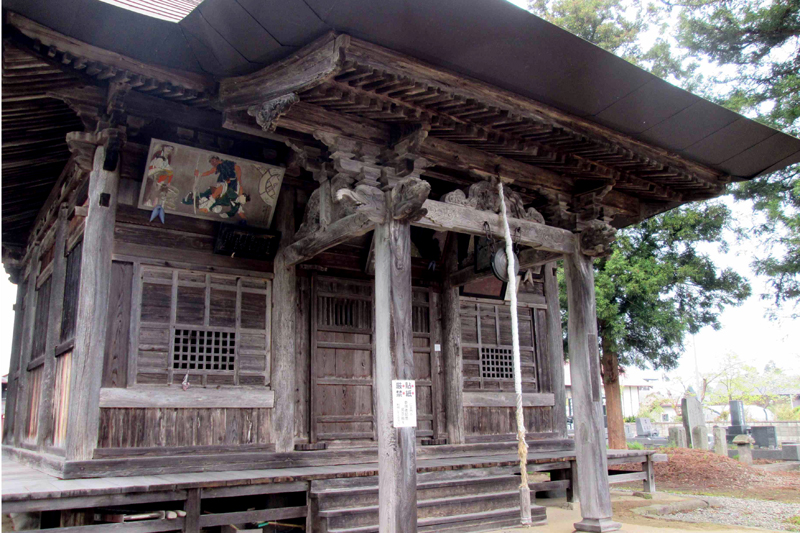
Tomioka Kannon (Fusshoji Kannon Hall) is designated as an Important Cultural Property of Japan. The wooden seated statue of the eleven-faced Kannon Bodhisattva enshrined in the Kannon Hall is an Important Cultural Property designated by Aizumisato Town
INFORMATION
- Facility name: Temple No. 26 Tomioka Kannon
- Address: 27 Tomioka, Tomikawa, Aizumisato-machi, Fukushima Prefecture
- Phone number: 0242-56-4882 (Aizumisato Town Tourism Association)
GOOGLE MAP
The Kannon Hall and 29th temple of Aizu's oldest temple, Hoyo-ji, which is a nationally important cultural property, is called "Suzakurin Kannon."
The 29th temple, Hoyo-ji Suzumebayashi Kannon, is an ancient temple built by Tokudo Shonin in 720, before Enichi-ji Temple was founded, and was once a central temple in Aizu
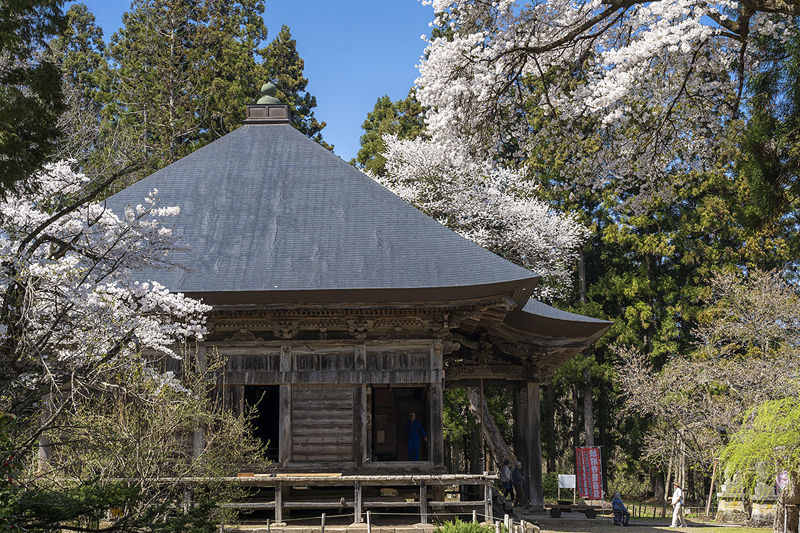
The Kannon Hall was rebuilt in the 800s by Tokuichi, the founder of Enichiji Temple. It houses three nationally designated important cultural properties and two designated important cultural properties by Fukushima Prefecture
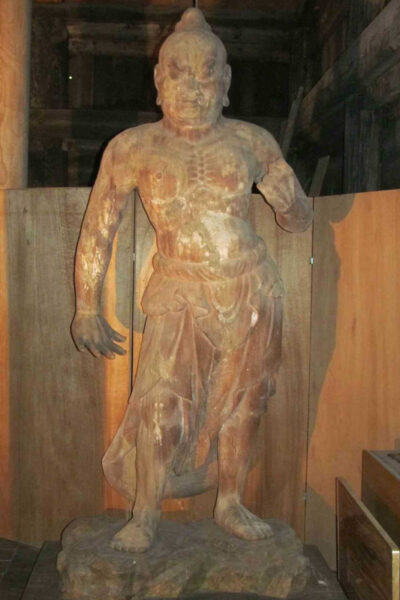
INFORMATION
- Facility name: 29th temple, Suzumebayashi Kannon
- Address: 3554 Yamashita, Suzurin Sanban, Aizumisato Town, Fukushima Prefecture
- Phone number: 0242-56-4882 (Aizumisato Town Tourism Association)
GOOGLE MAP
The principal image and the Kannon Hall that houses it are designated as important cultural properties of Japan
At the 31st temple, Tachiki Kannon, there is a Kannon hall that houses the 7.42m tall, 8.5m tall Eleven-faced Thousand-armed Kannon Bodhisattva standing statue, which is said to have been carved from a standing tree at the behest of Kobo Daishi, and which gave the temple its name. Both statues are designated as Important Cultural Properties of Japan
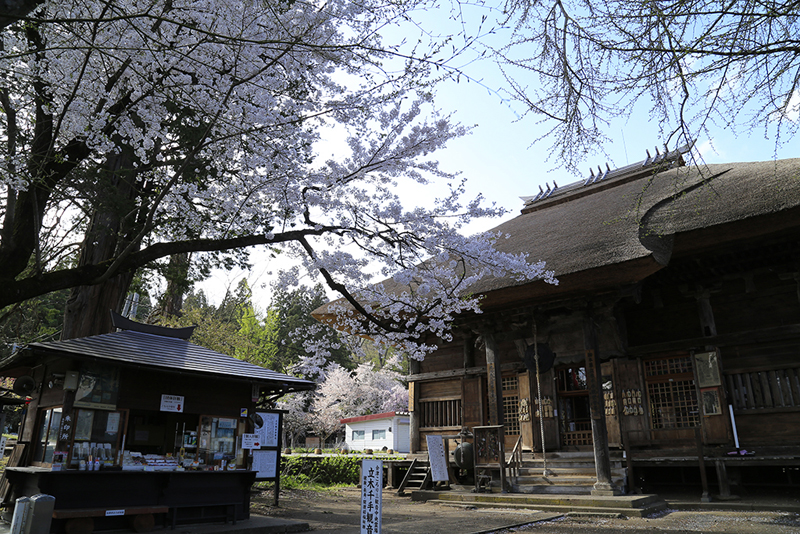
Keiryuji Temple, where the Kannon Hall is located, is an ancient temple said to have been founded around 1200. The 30 wooden standing statues of the Twenty-Eight Deities, the Wind God, and the Thunder God that protect the principal image are designated as Important Cultural Properties by Fukushima Prefecture, while the Seated Amitabha Buddha, Seated Yakushi Buddha, the Large Incense Burner, and the two Standing Kongorikishi Statues are designated as Important Cultural Properties by Aizubange Town
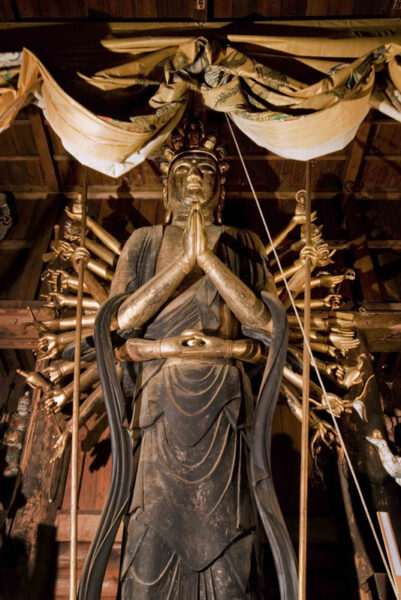
INFORMATION
- Facility name: Temple No. 31, Tachiki Kannon
- Address: 2944 Matsubara, Toji, Aizubange Town, Fukushima Prefecture
- Phone: 0242-83-3171
- URL: Tachiki Kannon
GOOGLE MAP
List of "Aizu Thirty-three Kannon"
We have introduced the representative Kannon halls, including the "Aizu Thirty-three Kannon Bodhisattvas," a national treasure and a nationally designated important cultural property, but there are many more that are nationally designated important cultural properties or local government designated important cultural properties. Even in today's car-driven society, it would be impossible to visit all 33 + 3 temples in one day
Why not take your time and spend a few days experiencing the essence of Japanese Buddhist culture that has blossomed in Aizu?
For details on the cultural properties, please see the list of "Aizu Thirty-three Kannon" below
- First temple: Ooki Kannon
- Address: 3281-1 Tsukada, Otagi, Shiokawa-cho, Kitakata-shi, Fukushima Prefecture
- Phone number: 0241-22-0001 (Former Kai House)
- Temple: Shingon sect Kobaiyama Joanji Temple
- Principal deity: Eleven-faced Kannon Bodhisattva
- Temple No. 2: Matsuno Kannon
- Address: 730 Matsuno, Matsumaiya, Keitoku-cho, Kitakata City, Fukushima Prefecture
- Phone number: 0241-22-0001 (Former Kai House)
- Temple: Soto Zen sect Butohozan Ryoenji Temple
- Principal deity: Thousand-Armed Kannon Bodhisattva
- Temple No. 3: Ayagane Kannon
- Address: 187-1 Ayakane, Yonemura, Toyokawa-cho, Kitakata-shi, Fukushima
- Phone number: 0241-22-0001 (Former Kai House)
- Temple: Soto Zen Choryuzan Kinsenji Temple
- Principal deity: Eleven-faced Kannon Bodhisattva
- Temple No. 4: Takayoshi Kannon
- Address: 4415 Takayoshi, Yonemura, Toyokawa-cho, Kitakata-shi, Fukushima Prefecture
- Phone number: 0241-22-0001 (Former Kai House)
- Temple: Shingon sect Yoshireyama Tokushoji Temple
- Principal deity: Eleven-faced Kannon Bodhisattva
- Fifth Temple: Atsushio Kannon
- Address: 795 Atsushio-ko, Atsushio-kanocho, Kitakata City, Fukushima Prefecture
- Phone number: 0241-22-0001 (Former Kai House)
- Temple: Gohozan Jigenji Temple of the Soto sect
- Principal deity: Thousand-Armed Kannon Bodhisattva
- The 6th temple: Sugure Kannon
- Address: 630-1 Mitsuidonoue, Sekishibacho, Kitakata City, Fukushima Prefecture
- Phone number: 0241-24-5323 (Kitakata City Cultural Affairs Division)
- Temple: Shingon sect Matsushimayama Shofukuji Temple
- Principal deity: Eleven-faced Kannon Bodhisattva
- Cultural assets:
- Nationally designated important cultural property / Shofukuji Temple Kannon Hall
- Important Cultural Property designated by Fukushima Prefecture / Bronze Bell, Wooden Standing Statue of Acala, Wooden Standing Statue of Bishamonten
- The seventh temple: Kumakura Kannon
- Address: 837-1 Kumakura, Kumakura-cho, Kitakata City, Fukushima Prefecture
- Phone number: 0241-22-0001 (Former Kai House)
- Temple: Jodo sect Shiunzan Komyo-ji Temple
- Principal deity: Thousand-Armed Kannon Bodhisattva
- The 8th temple: Takeya Kannon
- Address: 697 Daihata Hei, Nakayazawa, Shiokawa-cho, Kitakata City, Fukushima Prefecture
- Phone number: 0241-22-0001 (Former Kai House)
- Temple: Soto Zen Daiunzan Kannonji Temple
- Principal deity: Nyoirin Kannon Bodhisattva
- Cultural assets:
- Important Cultural Property of Fukushima Prefecture / Wooden Seated Nyoirin Kannon Statue
- 9th temple: Tota Kannon
- Address: 3227 Yachinaka, Toda, Shiokawa-cho, Kitakata City, Fukushima Prefecture
- Phone number: 0241-22-0001 (Former Kai House)
- Temple: Soto Zen Fukujuzan Daikoji Temple
- Principal deity: Thousand-Armed Kannon Bodhisattva
- Temple No. 10: Josho Kannon
- Address: Daimai, Katsutsune, Yukawa Village, Kawanuma District, Fukushima Prefecture
- Phone number: 0241-27-4566
- Temple: Rurikozan Shojoji Temple of the Shingon sect
- Cultural assets:
- National Treasures / Wooden Yakushi Nyorai and its two attendant statues (wooden seated Yakushi Nyorai, standing Gakko Bodhisattva, standing Nikko Bodhisattva)
- Nationally designated important cultural property / Standing statue of Sho Kannon Bodhisattva, Standing statue of Eleven-faced Kannon Bodhisattva, Standing statue of Kokuzo Bodhisattva, Standing statue of Jizo Bodhisattva (Enmei Jizo), Standing statue of Jizo Bodhisattva (Amefuri Jizo), Statues of the Four Heavenly Kings, Yakushido (Aizu Central Yakushido)
- Important cultural property designated by Yukawa Town / wooden seated statue of Tokuichi Bodhisattva, colored silk Ryokai mandala map, colored paper hanging scroll with the eight ancestors of the Shingon statue
- The 11th temple: Tsukahara Kannon
- Address: 1516 Tsukahara Higashi, Aizubange Town, Fukushima Prefecture
- Phone number: 0242-83-2111 (Aizubange Town Tourism and Products Association)
- Temple: Tendai sect Kozan Manzoji Temple
- Principal deity: Bato Kannon Bodhisattva
- The 12th temple, Tamurayama Kannon
- Address: 147 Shimo-ko, Wagojido, Kitaaizu-cho, Aizuwakamatsu City, Fukushima Prefecture
- Phone number: 0242-23-8000 (Aizu-Wakamatsu Tourism Bureau)
- Temple: Shingon Buddhism Fukujuzan Yosenji Temple
- Principal deity: Kannon Bodhisattva
- The 13th temple, Tatekannon
- Address: 17 Kitaaizumachi Tate, Aizuwakamatsu City, Fukushima Prefecture
- Phone number: 0242-23-8000 (Aizu-Wakamatsu Tourism Bureau)
- Temple: Fukujuzan Kannonji Temple of the Shingon sect
- Principal deity: Kannon Bodhisattva
- The 14th temple: Shimoarai Kannon
- Address: 60 Shimoarai, Kitaaizu-cho, Aizuwakamatsu City, Fukushima Prefecture
- Phone number: 0242-23-8000 (Aizu-Wakamatsu Tourism Bureau)
- Temple: Shingon sect Shomeizan Rengeji Temple
- Principal deity: Kannon Bodhisattva
- 15th Temple: Takase Kannon
- Address: 81 Takase, Kamisashicho, Aizuwakamatsu City, Fukushima Prefecture
- Phone number: 0242-23-8000 (Aizu-Wakamatsu Tourism Bureau)
- Temple: Soto Zen Yoshitakayama Fukushoji Temple
- Principal image: Eleven-faced Thousand-Armed Kannon Bodhisattva
- Cultural assets:
- Nationally designated natural monument / Takase's big tree (zelkova)
- The 16th temple, Hirasawa Kannon
- Address: 419 Hirazawa, Nakazawa, Machikitamachi, Aizuwakamatsu City, Fukushima Prefecture
- Phone number: 0242-23-8000 (Aizu-Wakamatsu Tourism Bureau)
- Temple: Soto Zen Hirosawa Kokuseiji Temple
- Principal deity: Kannon Bodhisattva
- The 17th temple: Nakanomyo Kannon
- Address: 119-2 Nakanoaki, Machikitamachi, Aizuwakamatsu City, Fukushima Prefecture
- Phone number: 0242-23-8000 (Aizu-Wakamatsu Tourism Bureau)
- Temple: Shingon sect Myokichisan Mikkō-in Temple
- Principal deity: Kannon Bodhisattva
- 18th Temple: Takizawa Kannon
- Address: Yawatatakizawa, Ichinoki-cho, Aizuwakamatsu City, Fukushima Prefecture
- Phone number: 0242-23-8000 (Aizu-Wakamatsu Tourism Bureau)
- Temple: Ikkisan Takizawaji Temple
- Principal deity: Kannon Bodhisattva
- 19th Temple: Ishizuka Kannon
- Address: 5-50 Kawaramachi, Aizuwakamatsu City, Fukushima Prefecture
- Phone number: 0242-23-8000 (Aizu-Wakamatsu Tourism Bureau)
- Temple: Ishizukayama Rendaiji Temple of the Shingon sect
- Principal deity: Thousand-Armed Kannon Bodhisattva
- Temple No. 20: Oyama Kannon
- Address: 3080 Tateyama-ko, Oaza Miyama, Kadota-cho, Aizuwakamatsu City, Fukushima Prefecture
- Phone number: 0242-23-8000 (Aizu-Wakamatsu Tourism Bureau)
- Temple: Tendai sect Jingozan Shokokuji Temple
- Principal deity: Kannon Bodhisattva
- The 21st temple, Sakudari Kannon
- Address: 1173 Oishi, Higashi-Hari-Dagari, Aizumisato-machi, Fukushima Prefecture
- Phone number: 0242-56-4882 (Aizumisato Town Tourism Association)
- Temple: Rinzai sect Sadageyama Kannonji Temple
- Principal deity: Kannon Bodhisattva
- Cultural assets:
- Fukushima Prefecture Designated Important Cultural Property/Hidaragare Kannon Hall
- 22nd Temple: Aikawa Kannon
- Address: 365 Maeyamacho, Koidama, Aizumisato-machi, Fukushima Prefecture
- Phone number: 0242-56-4882 (Aizumisato Town Tourism Association)
- Temple: Soto Zen sect Kukuboyama Jifukuji Temple
- Principal deity: Eleven-faced Kannon Bodhisattva
- Cultural assets:
- Aizumisato Town Designated Important Cultural Property/Wooden Eleven-Faced Kannon Statue
- 23rd Temple: Takakura Kannon
- Address: 691 Maruyama Otsu, Aizumisato-machi, Fukushima Prefecture
- Phone number: 0242-56-4882 (Aizumisato Town Tourism Association)
- Temple: Tendai sect Takakurayama (Seal is Entsuji Temple)
- Principal deity: Eleven-faced Kannon Bodhisattva
- 24th Temple: Sekiyama Kannon
- Address: 396 Kamikomatsu Otsu, Koidama, Aizumisato Town, Fukushima Prefecture
- Phone number: 0242-56-4882 (Aizumisato Town Tourism Association)
- Temple: Shingon sect Nichinji Temple
- Principal deity: Eleven-faced Kannon Bodhisattva
- 25th Temple: Ryoke Kannon
- Address: 194 Ryoke, Fujiyadate, Aizumisato-machi, Fukushima Prefecture
- Phone number: 0242-56-4882 (Aizumisato Town Tourism Association)
- Temple: Soto Zen sect Enmeizan Jorakuji Temple
- Principal deity: Eleven-faced Kannon Bodhisattva
- Temple No. 26: Tomioka Kannon
- Address: 27 Tomioka, Tomikawa, Aizumisato-machi, Fukushima Prefecture
- Phone number: 0242-56-4882 (Aizumisato Town Tourism Association)
- Temple: Tendai sect Hiyozan Fukushoji
- Principal deity: Eleven-faced Kannon Bodhisattva
- Cultural assets:
- Nationally designated important cultural property / Fussho-ji Temple Kannon Hall
- Aizumisato Town Designated Important Cultural Property / Wooden Seated Eleven-Headed Kannon Bodhisattva Statue
- 27th Temple: Oiwa Kannon
- Address: 486 Muramawarihei, Yoshida, Aizumisato Town, Fukushima Prefecture
- Phone number: 0242-56-4882 (Aizumisato Town Tourism Association)
- Temple: Tendai sect Ushibuseyama Nino-ji Temple
- Principal deity: Kannon Bodhisattva
- 28th Temple: Takada Kannon
- Address: 2968 Takada-ko, Aizumisato-machi, Fukushima Prefecture
- Phone number: 0242-56-4882 (Aizumisato Town Tourism Association)
- Temple: Tendai Sect Takadasan Tennoji
- Principal deity: Eleven-faced Kannon Bodhisattva
- 29th temple: Suzumebayashi Kannon
- Address: 3554 Yamashita, Suzurin Sanban, Aizumisato Town, Fukushima Prefecture
- Phone number: 0242-56-4882 (Aizumisato Town Tourism Association)
- Temple: Tendai sect Raidenzan Hoyo-ji Temple (the temple seal is Fukusen-ji Temple)
- Principal deity: Eleven-faced Kannon Bodhisattva
- Cultural assets:
- Nationally designated important cultural property / Hoyo-ji temple main hall shrine and Buddhist altar, wooden statues of Kongorikishi
- Important cultural property designated by Fukushima Prefecture: Wooden standing statue of eleven-faced Kannon (Katsura), wooden standing statue of eleven-faced Kannon (zelkova) (both secret Buddha statues), a wooden seated statue of Tokudo Shonin, a three-story pagoda at Hoyo-ji Temple, a bronze bell, a wooden plank of the eleven-faced Kannon, etc
- Aizumisato Town designated important cultural property / 19 statues of the 33 Kannon Bodhisattvas in the Kannon Hall of Hoyo-ji Temple, etc
- Temple No. 30: Nakada Kannon
- Address: 147 Donogo-ko, Yoneda, Aizumisato-machi, Fukushima Prefecture
- Phone number: 0242-56-4882 (Aizumisato Town Tourism Association)
- Temple: Soto Zen sect Fumonzan Koanji Temple
- Principal deity: Eleven-faced Kannon Bodhisattva
- Cultural assets:
- Nationally designated important cultural property / Koanji Temple old Kannon hall shrine, Koanji Temple bronze statues of eleven-faced Kannon and its attendants, Fudo Myoo and Jizo Bodhisattva
- The 31st temple, Tachiki Kannon
- Address: 2944 Matsubara, Toji, Aizubange Town, Fukushima Prefecture
- Phone: 0242-83-3171
- Temple: Kintozan Eiryu-ji Temple of the Shingon sect
- Principal deity: Thousand-Armed Kannon Bodhisattva
- Cultural assets:
- Nationally Designated Important Cultural Property / Kannon Hall of Eiryu-ji Temple, Wooden Thousand-Armed Kannon Statue
- Fukushima Prefecture designated important cultural property / 30 wooden statues of the 28 guardian deities, including wind gods and thunder gods
- Aizubange Town Designated Important Cultural Property / Wooden Seated Amida Buddha Statue, Wooden Seated Yakushi Buddha Statue, Two Standing Kongorikishi Statues
- Temple No. 32: Aotsu Kannon
- Address: 71 Aozu Honcho, Aizubange Town, Fukushima Prefecture
- Phone number: 0242-83-2111 (Aizubange Town Tourism and Products Association)
- Temple: Soto Zen sect Seikozan Josenji Temple
- Principal deity: Kannon Bodhisattva
- Temple No. 33: Oike Kannon
- Address: 152 Teranomae, Oikeda, Aizubange Town
- Phone number: 0242-83-2111 (Aizubange Town Tourism and Products Association)
- Temple: Soto Zen temple, Hagurosan Saikoji
- Principal deity: Kannon Bodhisattva
- Extra temple 1: Floating Kannon
- Address: 2222-3 Ryukoji Kitako, Aizumisato-machi, Fukushima Prefecture
- Phone number: 0242-54-2446 (Ryukoji Temple)
- Temple: Tendai Sect Dojuzan Ryukoji Temple
- Principal deity: Eleven-faced Kannon Bodhisattva
- Cultural assets:
- National Treasure / One-character Lotus Sutra Opening and Closing (Volume 6 missing)
- Extra Temple 2: Yanaizu Kannon
- Address: 176 Terayamachi, Yanaizu-cho, Yanaizu-machi, Fukushima Prefecture
- Phone number: 0241-42-2346 (Yanaizu Tourism Association Tourist Information Center)
- Temple: Rinzai sect Reiganzan Enzoji Temple
- Principal deity: Kannon Bodhisattva and others
- Cultural assets:
- Nationally designated important cultural property/Enzoji Okunoin Bentendo
- Extra temple No. 3: Torioi Kannon
- Temple: 3533 Nyohoji Otsu, Nozawa, Nishiaizu Town, Fukushima Prefecture
- Phone number: 0241-45-2061 (Torioi Kannon Nyohoji Temple)
- Temple: Shingon Sect Kongozan Nyohoji Temple
- Principal deity: Kannon Bodhisattva
- Cultural assets:
- Fukushima Prefecture Designated Important Cultural Property / Niomon Gate of Kannon Hall at Nyohoji Temple, Wooden Kongorikishi Statues, Wooden Standing Statue of Shokannon
- Fukushima Prefecture Natural Monument/1200-year-old Japanese yew tree


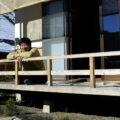
![Pilgrimage to the 33 Kannon temples remaining in Minamiaizu. The "Mikurairi 33 Kannon temples" certified as a Japan Heritage Site [Fukushima Prefecture] 11_MG_9631](https://jp.neft.asia/wp-content/uploads/2022/11/11_MG_9631-150x150.jpg)
!["Mogami Safflower" certified as a Japanese Heritage and Japanese Agricultural Heritage [Yamagata Prefecture] Mogami safflower](https://jp.neft.asia/wp-content/uploads/2022/12/30121446_m-1-150x150.jpg)
![The Golden Legend of Mutsu Province | The Koganeyama Gold Mining Site in Wakuya Town, said to be Japan's first gold-producing region [Miyagi Prefecture] 32555826_m](https://jp.neft.asia/wp-content/uploads/2025/10/32555826_m-150x150.jpg)

![Legend of the buried gold treasure of the Fujiwara clan of Oshu! What is Kinkeiyama in Hiraizumi? [Iwate Prefecture] gold nugget](https://jp.neft.asia/wp-content/uploads/2017/08/3202420_m-150x150.jpg)
![[Yamagata Prefecture] Tsuruoka's silk weaving industry, built by trading swords for hoes 5182039_m](https://jp.neft.asia/wp-content/uploads/2023/02/5182039_m-150x150.jpg)
![Tour the precious cultural assets remaining in Minamiaizu, the southern part of the Aizu region [Fukushima Prefecture] 002402574](https://jp.neft.asia/wp-content/uploads/2022/11/002402574-150x150.jpg)
